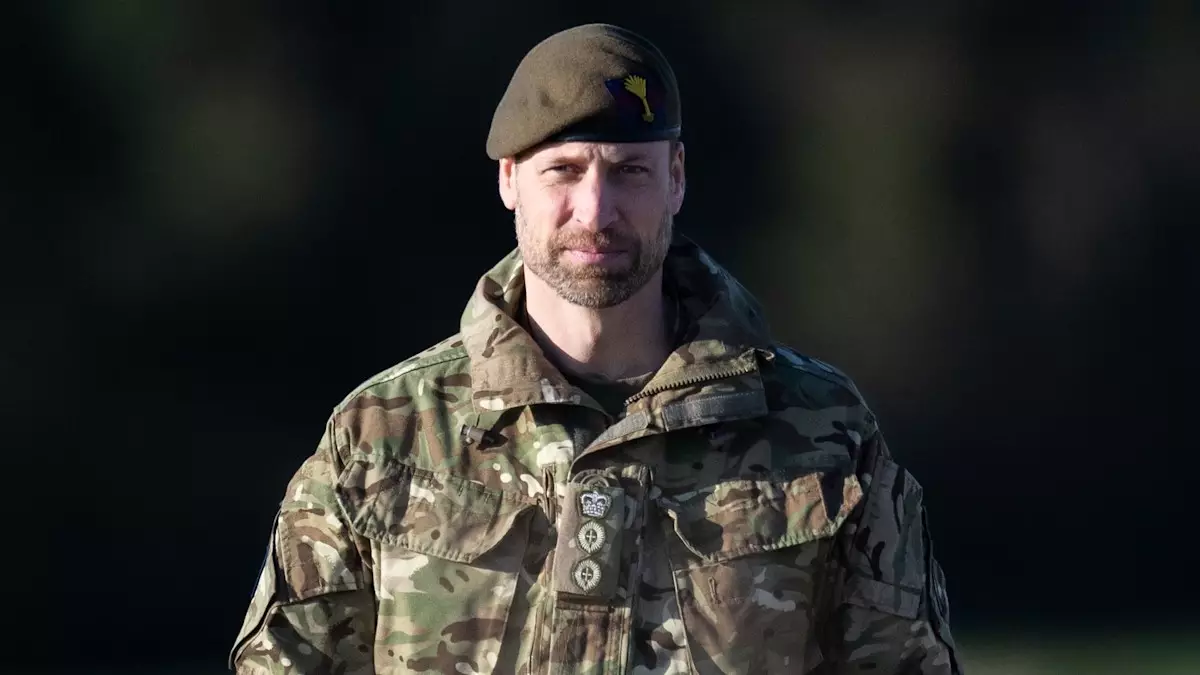On Tuesday, Prince William, the Prince of Wales, displayed his unwavering support for the British Armed Forces during a visit to the Welsh Guards at Salisbury Plain. This event marks a significant point in William’s role as colonel of the regiment—an honor he assumed just a year prior. Dressed in military camouflage, the 42-year-old royal participated in live-fire training exercises alongside soldiers from the regiment’s 1st Battalion, showcasing not only his commitment to the troops but also a personal connection that extends beyond mere ceremonial duties.
This meeting comes at a pivotal time for the 1st Battalion. For the past two years, they have focused primarily on ceremonial roles often referred to as “blue line” duties. However, with an impending return to traditional military operations slated for January 2025, this training is crucial as the regiment reinstates its expert capabilities in specialist weapons. Thus, the Prince’s involvement signals the importance of hands-on experience and practical training for soldiers who have spent considerable time away from the battlefield.
During his visit, Prince William engaged in authentic dialogue with the soldiers, describing their experiences and acknowledging the busy ceremonial schedule they have faced. His comments, such as “It’s good to get out of ceremonial, isn’t it?” reflect not only an understanding of military life but also a deeper empathy for the challenges that soldiers face.
His interaction with a six-member sniper team demonstrates a commitment to not only morale but also to understanding the fundamental aspects of military training. The royal’s inquiry about their training and his attempts to operate a drone highlight a modern approach to military engagement. Drones, now a critical factor in modern warfare—as evidenced in conflicts like the ongoing situation in Ukraine—represent the evolving nature of military operations, and Prince William’s active inquiry is a way to bridge the gap between royalty and the realities of modern soldiers.
The impact of the Prince’s visit was echoed by the platoon commander, who labeled the royal seasoning as “very special.” Such royal visits have a historical significance, as they often serve to uplift the troops’ spirit. The Welsh Guards, with their rich legacy tied to the monarchy, particularly appreciate the acknowledgement of their hard work and dedication. Engaging with the regiment not only strengthens the bond but also assures the soldiers that their sacrifices are recognized at the highest levels of society.
Additionally, social media was abuzz with comments regarding the Prince’s appearance, especially his choice to maintain a beard during his military visit. This new look symbolizes a modern monarchical approach, breaking from traditional expectations while still retaining respect for military norms. The appreciation expressed by royal enthusiasts for William’s look indicates a shifting public perception of monarchy, one that embraces personal style alongside royal duties.
Looking ahead, Kensington Palace has confirmed that the Princess of Wales, Kate Middleton, will also be assuming significant royal responsibilities with the impending state visit from the Emir of Qatar. This dual involvement of the Waleses emphasizes a shared commitment to royal duties, representing the monarchy and the nation during high-profile visits.
Scheduled to participate in a carriage procession and lunch at Buckingham Palace, the royal couple’s engagement further underscores their roles as modern representatives of Britain. Their outgoing demeanor, coupled with the Prince’s recent military engagements, offers reassurance to the public that the royal family remains closely knitted with their responsibilities and the people they serve.
Ultimately, Prince William’s display of compassion and engagement with the Welsh Guards reaffirms the importance of royal support within the Armed Forces. Not only does it enhance the morale of those who serve, but it also highlights a pivotal connection between the monarchy and military history—one that is eager to adapt and grow in alignment with contemporary challenges.

